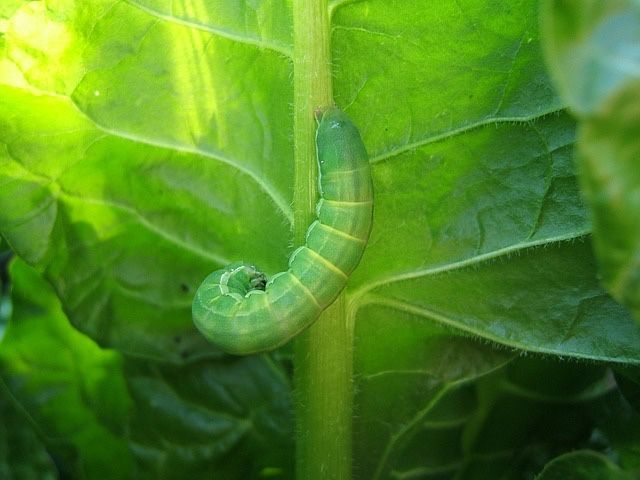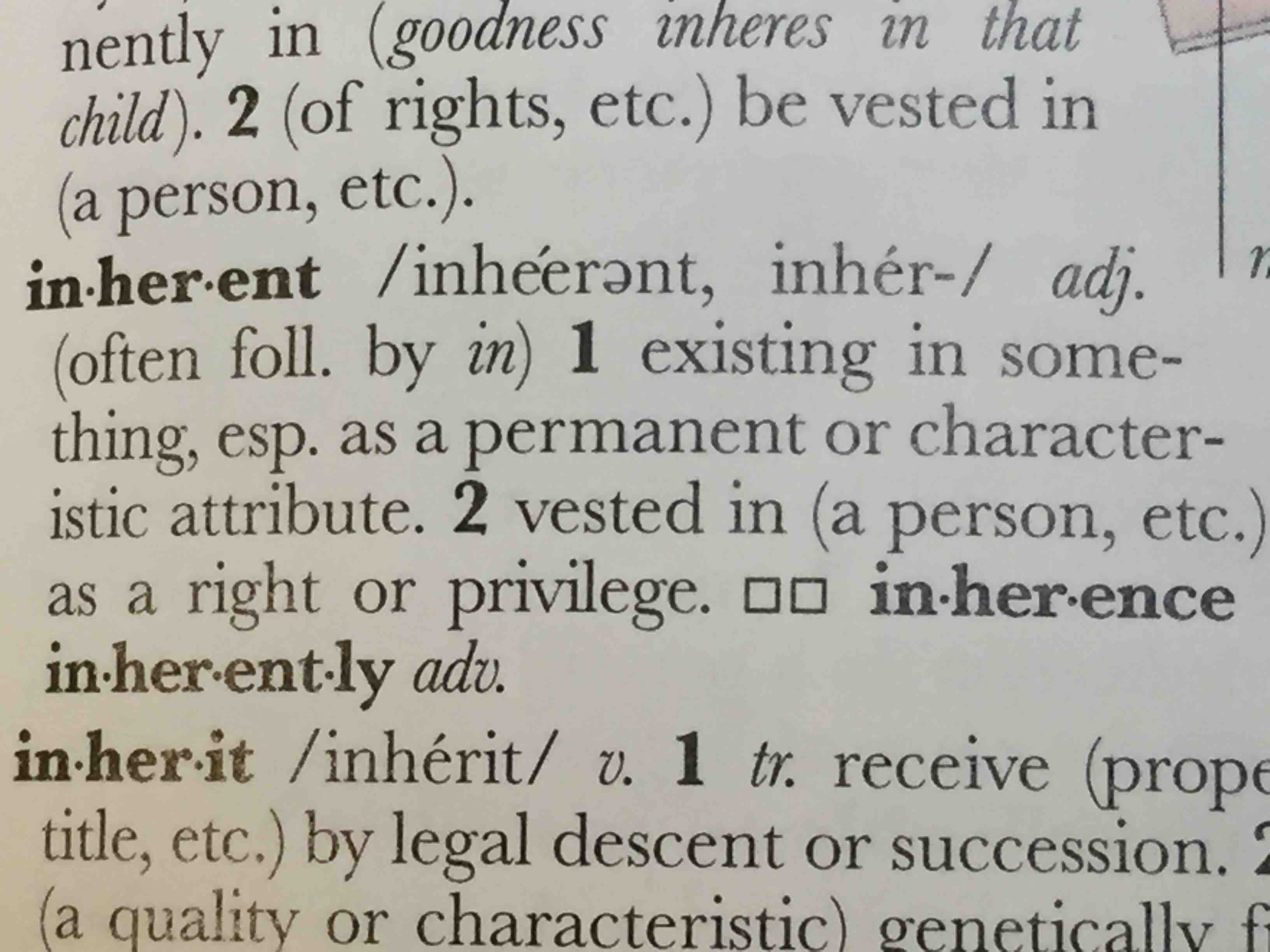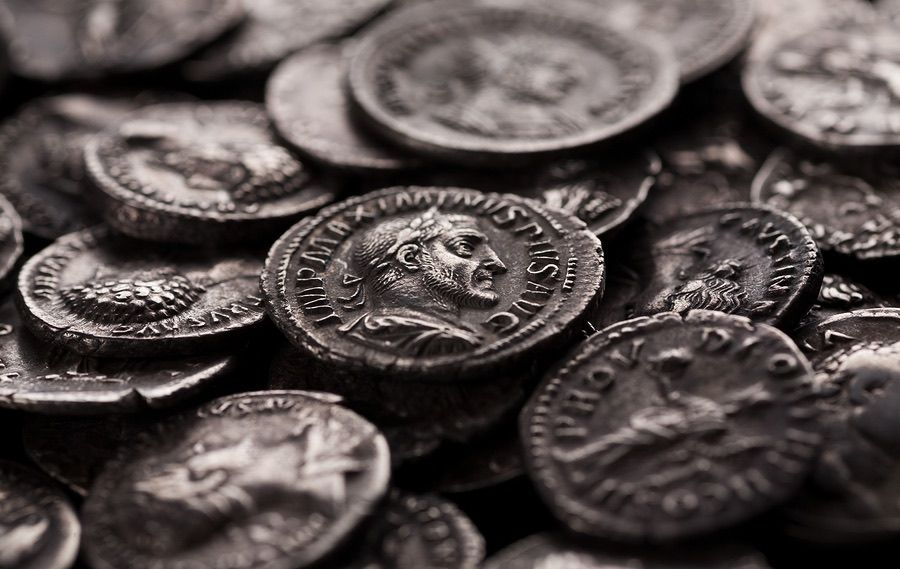Good and evil. In the previous article, I believe I stated my case of what my concept of good and evil is not rather clearly. There are, I am certain, plenty of those who disagreed with my belief that God is the reason why morality not only exists, but is also objective. Or perhaps they agree that morality is objective, but they don’t believe it has anything to do with God or that He even exists. And there are those who are fine with the idea of subjective morality and that, as I quoted Richard Dawkins, we are merely dancing to our DNA.
Regardless of the extent of agreement or disagreement, I must press forward to the finality of why I believe it to be God that is the centrality of morality. I hope you decide to move forward with me.
(If you haven't read Part I, I recommend you do so before reading this one.)
OUR INTRINSIC WORTH IN GOD’S EYES
I ended on the point that God sees us with intrinsic worth. There are plenty who believe that if God does exist, then He does so without viewing us with such value, but rather with a different and very caustic type of value: entertainment value. For this reason, the idea of being designed with a purpose, especially any noble purpose, is out of the question. But I wholeheartedly disagree with those sentiments.
If that were the case, then we would have no moral compass. There would be no conscience instilled in each of us. There would not be that exhilaration from doing good nor the guilt from doing evil. Darwin’s survival of the fittest theory would ring true for humans, making us no different than the animals (in fact he did say that in The Descent of Man). This is why, in his book River Out of Eden, Richard Dawkins was able to attempt the parallel of insect cruelty to human cruelty. But here Dawkins faltered because he tied together as equal two very different things: instinct and indoctrination (as well as the obvious of insects and humans).
SURVIVAL: INSTINCT OR INDOCTRINATION?

Dawkins utilized the digger wasp that lays its eggs in the caterpillar, which is then eaten alive from the inside out by the larvae. It is stomach turning and for the obvious reason that it is cruel. It isn’t seemingly cruel. It is cruel. But according to whom? The digger wasp? No. The caterpillar? Maybe. To nature? Obviously not. But if not to nature, then probably not to the caterpillar either.
It is cruel to only one species: humans. This is because we perceive cruelty, though only from the human perspective. Through this perception, we label what is good and evil, even regarding things we do not understand, like the digger wasp’s actions.
Sometimes, however, we find our assessments wrong, like with Dawkins’ experiment. His book, and his caterpillar-wasp-human-God correlation, was published in 1995. Science has advanced quite dramatically since then. The reason these wasps, known as parasitoids, attack and inject their eggs into the caterpillars is not out of spite or cruelty toward another insect. They are actually called upon by the plant being eaten by the caterpillar. Fascinating, isn’t it?
Discover Magazine wrote a very informative article about the research behind this egg-laying phenomenon. When the caterpillar begins to eat the plant, the plant releases a chemical into the air, which alerts the wasp. The wasp finds the caterpillar through this released chemical and then injects its eggs, eventually killing the caterpillar. (There is competition that goes right into the heart of Darwin’s survival theory, but you can read the rest of the article on your own time.)
These parasitoids are considered nature’s pesticide. This is survival based on instinct. It is also about preserving the ecosystem of life, which points so emphatically toward preservation by design (but that topic is for another time).

But isn’t it still cruel? Apparently not. Research has proven that insects do not feel pain like humans because they do not possess nociceptors, which are pain receptors. In fact, the authors of the scientific study “Do Insects Feel Pain?”, published in Scientific American, came to this conclusion and also provided various examples of insects behaving normally during very abnormal circumstances, like being eaten alive. They stated, “Their behavior does not support the occurrence in insects of a pain state, such as occurs in humans.”
This study actually came well before Dawkins’ book. Nearly 70 years before. I only state that because he made the blunder, especially for a biologist, of saying in his book that “if Nature were kind, she would at least make the minor concession of anesthetizing caterpillars before they are eaten alive from within.”
Dawkins’ illustration is no dance. This is instinct and adaptation. It isn’t cruelty, despite our perceptions. Nature may be unforgiving and harsh, but it isn’t cruel. It is order that abides by set laws.
HUMANS AND INDOCTRINATION
Humans, on the other hand, exact cruelty, but not through instinct. It is through indoctrination. Just about every human act of cruelty on a grand scale (I would argue strongly that it is every single one) is due to indoctrination—believing a point of view is true, whether it is or not. Consider just a few of the recent articles I’ve written regarding Communism and the forced migration of Native Americans—those were conducted through an indoctrinated belief.
When we begin to formulate and believe the idea and doctrine that we are no different than the insects and animals, then we remove the need for and purpose of our God-given conscience and are able to blame our acts of cruelty on mere instinct and the outcomes of our indoctrinations as part of our societal adaptations.
BUT ENOUGH OF INSECTS. BACK TO GOD.
The mere idea that we have this conscience inside us helps prove (though for some may only strongly suggest) that God designed us, cares for us, and is in relationship with us. The fact we exist in such a manner exemplifies our intrinsic value.
Intrinsic means “inherent,” and I believe that lone definitive word is most powerful because it explains in detail exactly how we relate to God. The Oxford Illustrated American Dictionary defines inherent as “existing in something, especially as a permanent or characteristic attribute.”
We are in God and God is in us, and it is this truth that leads us to pursue a high standard of morality.
But being IN God and He IN us? Seriously?
Yes, I am quite serious, but I won’t leave you stranded with a blanket statement. I don’t like those any more than you do. So allow me the usage of analogy.
INTRINSIC VALUE AND THE SILVER COIN

The Roman Empire minted coins for its monetary system. Eventually these coins were made with a very high volume of silver. The intrinsic value in these coins was two-fold: the value of the Roman Empire and the value of silver.
Over time, the Roman Empire spread further and further, and with this, the monetary system fluctuated. When times were good and the war bounties were large, then the monetary system was more liberal by minting silver, and even gold, coins. The silver coins of the Roman Empire, according to the Ancient History Encyclopedia, “went from pure to 50% and then on down until they reached an all time low of just 2% silver content.” It was also noted that taxpayers would pay their taxes with the new, less valuable coins, and keep the more valuable ones. These less valuable coins had only one intrinsic value: country.
Interestingly enough, America has done the same. According to CoinSite.com, “any United States dime, quarter, half dollar or dollar that is dated 1964 or earlier is made of 90% silver.” Whenever the price of silver increases dramatically, people with a lot of high silver content coins will melt them down through a process called smelting in order to retain the silver and cash in. These coins minted any time after 1965 have no silver in them at all, therefore retaining only one source of intrinsic value: country.
Regardless that the silver in both of these monetary system’s coins were drained, they still held value because to whom they belonged.
HOW WE RELATE TO THE SILVER COIN
In much the same way, we are born with the highest intrinsic value. The Bible in Genesis 1:27 says, “So God created man in His own image, in the image of God, created He him; male and female created He them.” We were made in His image from the very beginning and we remain in His image.
Each of us is born pure; but as time progresses in our individual lives, we move further away from our Creator (or Minter) through evil deeds and/or disbelief in His existence. In much the same way the silver was removed from these coins, we remove God from us. Also, much like those coins, the image of the Creator is still visible. The only difference, strictly in this regard, between the creator of the coins and the Creator of who we are is this: the creator of the coins voluntarily eliminated the silver’s intrinsic value, while retaining his image; but it is man who voluntarily drains him or herself of the intrinsic value of what God planted in each of us: the conscience; and despite our rejection of Him, He retains His image upon us.
REMOVING OUR INTRINSIC WORTH
It is not strictly our personal wickedness that separates us from God. As I stated, humans exact cruelty. Wickedness is often done to us, and in this, our innocence, which ties in directly to our conscience, is either lost or begins to dissipate. This direct experience of evil that indirectly distorts our conscience covers the gamut of human cruelty.
As I mentioned in the first article, we adhere to subjective morality through “experiences and other means of self-education”, which leads to the distortion of our conscience. Our direct and indirect experiences of evil practically encourage us to shun our intrinsic worth. We see so often the lack of justice and submission in the world that we begin to believe that there is none, and soon we convince ourselves that subjective morality is the truth and that this conscience is an oddity that can’t really be trusted.
Subjective morality begins at separating us from the knowledge that good and evil is objective and then landing us in a position, not of evil or of good, but where we can’t distinctly tell the difference between the two. And as Dawkins, or any other atheistic or naturalist worldview that perceives humans on the same level as insects and animals, would suggest, does it even matter if we can tell the difference?
What happens when we feel nothing? What happens when the conscience is finally silenced? What happens when we can no longer tell the difference between good and evil? Or worse yet, when we no longer care to know the difference?
In 1960, Dr. Hobart Mowrer, the well-known American psychologist of the mid-20th century and atheist, wrote this in his study called Sin: The Lesser of Two Evils:
“For several decades we psychologists looked upon the whole matter of sin and moral accountability as a great incubus and acclaimed our liberation from it as epoch-making. But at length we have discovered that to be ‘free’ in this sense, i.e., to have the excuse of being ‘sick’ rather than sinful, is to court the danger of also becoming lost. This danger is, I believe, betokened by the widespread interest in Existentialism which we are presently witnessing. In becoming amoral, ethically neutral, and ‘free,’ we have cut the very roots of our being; lost our deepest sense of self-hood and identity; and, with neurotics themselves, find ourselves asking: Who am I? What is my destiny? What does living (existence) mean?”
The third and (possibly) final part of this conversation will soon be completed. I will state my belief in what the concept of good and evil ultimately rests upon and how it can eliminate the question of whether morality is subjective or objective.